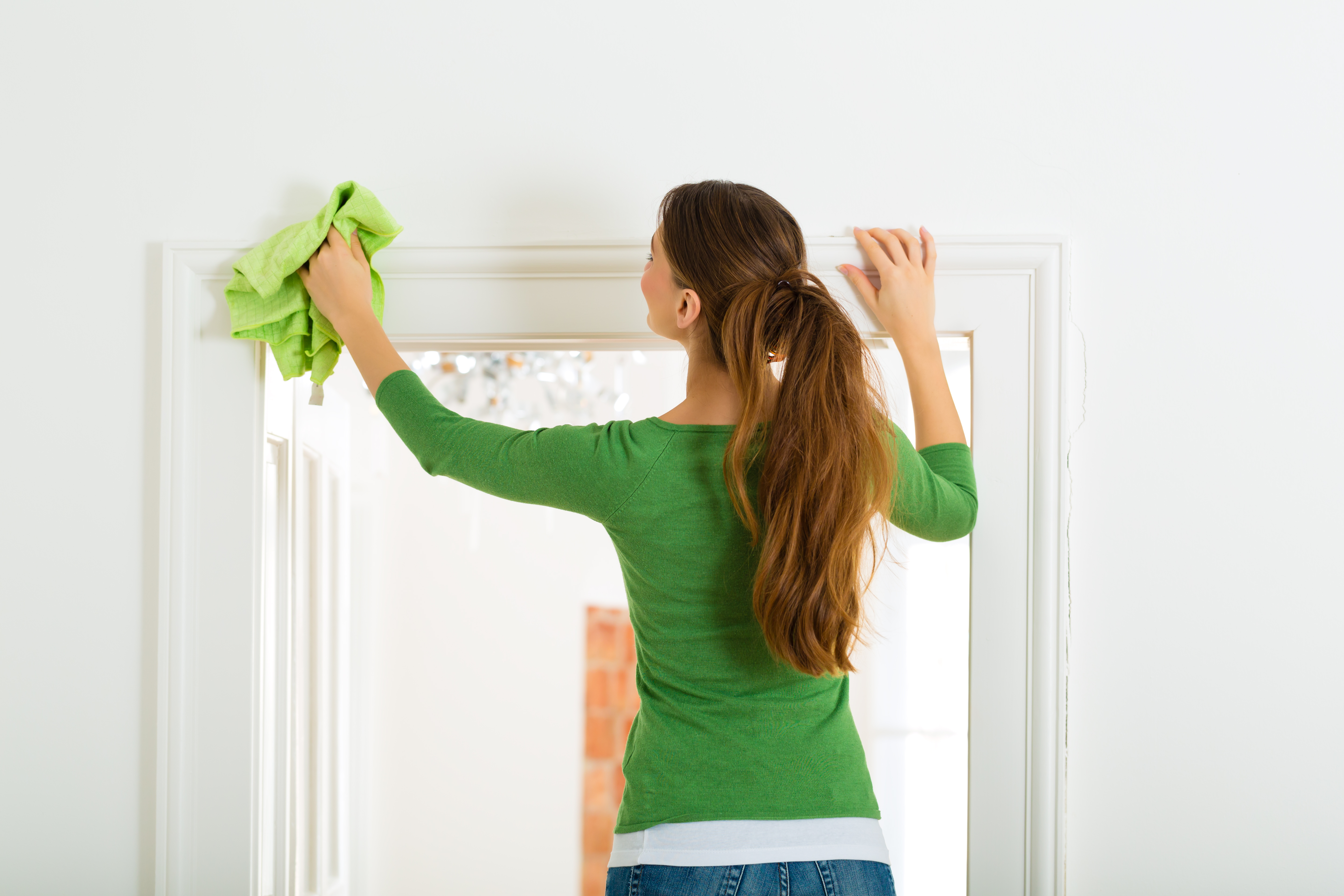
Garage clean-out costs vary considerably depending on the garage size, the waste type and amount, and how much work you do yourself.
The last step in dealing with a mouse problem: erase the evidence that you ever had one


If the mice causing the odor remain active, the cost of professional pest control averages $170, but you can be assured that the issue will be resolved.
The first step in removing a mouse urine smell is finding the source of the infestation, and pros have the experience to do so.
A pro exterminator can prevent rodents (and their odor) from returning.
Without the right safety precautions, droppings from mice and rodents can threaten your health.
A local mice exterminator can remove the odor and infestation quickly.
Mice can squeeze through a hole the size of a dime and quickly take up residence in your home. Before long, you can end up with a horde that urinates and defecates wherever they go. The smell is potent, and the health risks are real. Once you get your mouse problem under control, use these tips to learn how to get rid of mice urine smell—and reclaim your living space.
Mice urine has a strong odor of ammonia when it’s new. If the mice have been around for a while, you might also notice a faint smell similar to damp or rotting wood. In an enclosed space like a cabinet or closet, the smell will be stronger because of the lack of air circulation.
Before you deodorize your space, make sure your mouse infestation has been properly dealt with. Then, follow our advice to make your home smell fresh and clean again.
There's no point in trying to tackle the smell of mouse pee if you've still got a house full of mice. Whether you've got a mouse or rat infestation, you need to take care of that before you take on the cleanup. If you’re unable to find the nest or can’t figure out how the critters got into your home to begin with, hire a local pest control company to eradicate the problem.
You can get rid of a small mouse problem on your own by setting humane traps and sealing entry points in your home. If the infestation is extensive, your best bet is to call in the pros.
In addition, you can make your home less inviting to mice by making sure there are no food sources. Mice only need a small supply of carelessly dropped crumbs to be satisfied, so put leftover food in sealed, airtight containers and wipe up any spills right away.
You’ll know you’re in an area of the house where mice have urinated if you detect a distinctive musty yet sharp ammonia scent. You'll most likely notice that the smell is stronger first thing in the morning or after you get home from work—before the house has had time to air out.
If the infestation was a serious one, you'll probably find urine pillars. These little mounds or pillars consist of an amalgamation of urine, dirt, feces, fur, and grease from mice fur. Urine pillars can reach two inches in height and half an inch wide, and you'll find them in the most heavily affected areas, including crawl spaces, the attic, the basement, behind the refrigerator, or under kitchen cupboards.
Mouse urine isn't just gross—it can potentially carry disease, as can mouse feces. So, before you start cleaning, which involves getting up close and personal with the waste, you need to protect yourself. Mice can carry hantavirus, which is a zoonotic pulmonary disease that can jump the species barrier and infect humans. The urine and feces can also cause salmonellosis, hemorrhagic fever, lymphocytic Chorio-meningitis, leptospirosis, and tularemia.
Because of the seriousness of these diseases, you need to protect yourself. You need:
Old clothing you don't mind either bleaching when you're done or throwing away
High-quality rubber gloves that won't split or tear
A face mask, preferably one with a fine particle filter to avoid inhaling any particles
Protective goggles
Even when you're fully outfitted in your PPE, avoid agitating the space too much. For example, it's not a good idea to grab the area rug and give it a good shake to loosen the pee and poop. Yes, it will loosen some of the particles, but it'll send them airborne, increasing the risk of infection.
Don't vacuum or mop, even though that seems like the best and quickest course of action. Vacuuming and mopping will send more particles airborne and contaminate your vacuum, which can then spread the dried urine particles to other parts of your home.
At least an hour before you begin cleaning, open the windows and doors. Get a cross breeze moving through the space to help draw out as many airborne particles as possible and get fresh air into the room.
To render the urine harmless, focus first on disinfection. For hard surfaces, the Centers for Disease Control and Prevention (CDC) recommends using a mixture of one part bleach and 10 parts water. While still outfitted in your protective gear, spray this mixture on the affected areas and let it soak for at least five minutes. This gives the bleach time to work and eliminate bacteria. After soaking, wipe over the area with paper towels and dispose of them.
The only way to render mouse urine harmless and get rid of the smell from soft surfaces is to deep clean them. You can use specially formulated disinfecting or antibacterial cleaners designed to work safely on sofas, curtains, and carpets. You can also steam clean, which works well because these cleaners use high-temperature water to sterilize a surface.
Remember, though, that not all materials can withstand all types of cleaners or are suitable for use with a steam cleaner. If in doubt, call a local cleaning company who can advise you or can tackle the job for you.
After you’ve disinfected everywhere that contained even the smallest traces of mouse urine, you may want to make sure the house smells less like a clinical environment. Again, let a cross breeze blow through, as it draws out the smell of the cleaners you used.
You can also try air fresheners, candles, or a mixture of vinegar, water, and essential oil spray. To help deter mice, bugs, and other pests from entering your home, you can also use a peppermint oil spray to both freshen the space and act as a deterrent.

Recognizing the signs of mouse activity can help you address a problem before it turns into a full-blown infestation. If you hear scratching or scurrying inside walls or cabinets, or if your pets are focused on a particular corner of a room, these can be signs of rodents.
If you have mice, you might see grease smudges on surfaces like baseboards where they travel, footprints or tail prints in dusty corners, or evidence of chewing on your belongings, especially food containers. Anywhere that mice might be hiding, you will likely also find droppings, especially in places that are not often disturbed by humans or pets. You should also investigate further if you have a sudden onset of allergy symptoms that aren’t explained by the usual causes.
No matter what kind of pest you’re dealing with, if you see signs of an infestation, you need to hire a pro to handle the job. Signs of a mouse infestation in your home include damage to your walls, floor, or furniture, as well as significant, recurring evidence of feces and urine in the house.
Hiring a pro not only handles the problem seriously and definitively, but it also helps set you up for the prevention of future mouse problems. A local mice exterminator will be able to inspect your home to see where the source of the problem is and give you guidance on how to prevent future infestations.
Depending on the severity of your mouse problem, you can expect pest control to cost anywhere between $50 and $500. That number can increase or decrease depending on the type of pest you’re dealing with, as well as its location and severity. You may also want to consider the cost of your time, as you might have to leave your home while the exterminator does the job.
From average costs to expert advice, get all the answers you need to get your job done.

Garage clean-out costs vary considerably depending on the garage size, the waste type and amount, and how much work you do yourself.

Hiring a house cleaner frees up your schedule and keeps your home spotless. The cost to hire a house cleaner depends on the size of your house, your schedule, and who you hire. Use this guide to understand typical house cleaning prices better.

Curious how much it costs to hire a housekeeper? Discover 2025 prices, key cost factors, and tips to save on professional housekeeping for your home.

Steam cleaning can be an effective way to disinfect your home. We explain what steam cleaning is, what you can steam clean in your home, and when to avoid it.

Hiring a house cleaner can save you time while making it easier to keep up with your home chores. Find out how much to tip house a cleaner for a job well done.

For homeowners wondering: can I hire someone to clean out my garage? Here are the best professionals to work with based on your project’s unique needs.